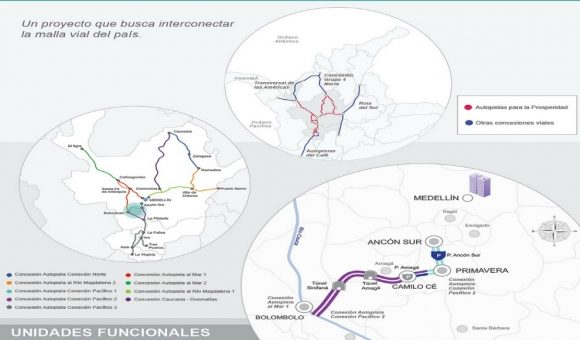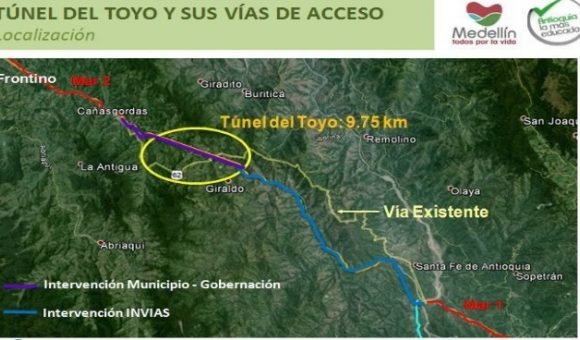Medellin, Colombia Taking More Steps to Avoid, Contain, Cure Coronavirus

While nearly all Colombia residents (including all of metro Medellin and Antioquia) remain under a national quarantine until April 13, governments, companies, hospitals and health researchers meanwhile are taking more steps to try to contain and (eventually) conquer Coronavirus threats.
Among recent examples:
“Pico y cedula” restrictions on grocery shopping: While the national quarantine allows many people to venture from their homes for food, medicines, hospital visits, cash withdrawals or other emergencies, several municipalities around Medellin (including Envigado, the biggest adjacent suburb) have adopted “pico y cedula” restrictions that limit grocery trips to certain days that correspond to the last digit of each individual cedula (the Colombian national proof-of-residency or citizenship card).
Government cash grants helping the poor. Colombia President Ivan Duque on March 24 announced yet another temporary cash subsidy program (averaging COP$160,000 or around US$50) for Colombia’s poorest populations, many of which are temporarily out-of-work because of the national quarantine.
This subsidy is in addition to existing subsidies for the 2.6 million families in the “Families in Action” welfare program, plus the “Youth in Action” and “Elderly” subsidy programs which also will include another temporary bonus of about COP$334,000 (US$100), in addition to regular monthly subsidies.
VAT refunds to the poor: On a related front, President Duque reiterated that “a momentous step will be taken with the start of the VAT [19% value-added tax] refund, a program that will reach close to 1 million families.”
Utility connections regardless of recent non-payment: Medellin-based utility giant EPM announced that thousands of residences that had experienced service cutoffs for non-payment of bills in recent weeks are now getting all utility services restored during the Coronavirus crisis.
Cheaper respirators: Medellin-based universities and research institutes including Universidad EIA, the “Grupo de Investigación en Bioinstrumentación e Ingeniería Clínica” (GIBIC at Universidad de Antioquia) and Industrias Médicas Sampedro are cooperating on a joint research initiative organized by #InnspiraMED to develop a relatively low-cost respirator specifically for patients suffering from Coronavirus.
Three prototypes under development await human trials and government approvals before mass production could begin – with many months more before commercialization, the developers cautioned.
Medellin-born ANDI – the national industrial/commercial trade association – added that “more than 100 volunteers from 20 academic institutions, the business sector and the public came together under the coordination of ANDI and [Medellin-based tech incubator] Ruta N to work with #InnspiraMED on three prototypes that can be rapidly scaled.
“The initial objective is to produce 2,000 respirators at a cost of US$1,000 each, for which donations of US$2 million are required,” according to ANDI. (For more info, see: http://www.andi.com.co/Uploads/INSPIRAMED.pdf).
More protective masks: The government of Antioquia, the city of Medellin and more than 30 local Antioquia companies announced March 24 a new initiative to produce more than 20 million masks designed to protect against Coronavirus, of which 1 million masks would be donated to health workers and vulnerable populations.
Protective suits for health workers: Medellin-based insurance giant Sura announced that it’s working with local companies (including Compañia de Empaques and clothing maker Crystal) on a prototype protective suit for health workers at risk of exposure to Coronavirus.
Following press reports incorrectly suggesting that this suit is close to commercial production, Seguros SURA issued this statement: “Seguros Sura Colombia clarifies that the suit for the protection of health personnel attending the Covid-19 situation is in the prototype stage and is not ready for mass production.”
More dedicated hospital beds: Medellin-based business promotion group Proantioquia announced March 24 that charitable foundations affiliated with Medellin-based corporate giants Grupo Argos, Grupo Sura, Grupo Nutresa, Corbeta, and Fundación Fraternidad Medellín just donated COP$15.8 billion (US$3.8 million) to boost Medellin’s intensive care unit (ICU) capacity by 25% — starting with the Fundacion San Vicente hospitals in Medellin and Rionegro, Antioquia.
On a parallel front, the city of Medellin just donated COP$3 billion (US$ 733,000) to IPS Hospital Universidad (operated by University of Antioquia) to double the number of ICU beds — for a new total of 88. More such ICU expansions at more hospitals will be required in future, cautioned Medellin Mayor Daniel Quintero.
Paid vacations: Employees at major companies including Home Center, Coltejer, Fabricato, Cementos Argos and thousands of construction workers at EPM’s giant “Hidroituango” hydroelectric plant in Antioquia have been given paid leave during the national quarantine, helping to reduce the threat of infections.
Regional bus terminals shuttered: Medellin just shut down its two major regional bus terminals (Terminal Norte and Terminal Sur) following the “puente” (three-day holiday) last weekend. The terminals had been allowed to operate until early March 24, enabling most travelers to return home just prior to the national quarantine that started on March 24. However, Medellin’s public “Metro” rail, bus, aerial-tram and road-tram systems remain open for the metro area.
















